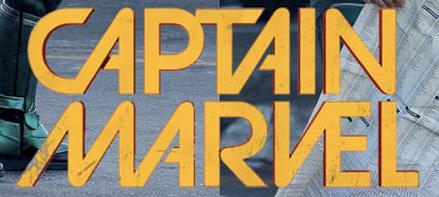Story by Grant Dillard, Staff writer
Graphic courtesy of Wikimedia Commons
For the past few years, Disney has been releasing live-action adaptations of their animated films. Features like “Beauty and the Beast,” “The Jungle Book” and “Cinderella” have been huge successes at the box office and have been received positively by both critics and audiences. With “Christopher Robin,” a live-action take on the Winnie the Pooh franchise, Disney decided to put forth an original story instead of retelling the events of previous animated pictures.
The film takes place in the 1940s in London, where Christopher Robin (Ewan McGregor) is now an adult with a family and an occupation at a luggage company. He is extremely busy and does not have a lot of time for his family, which is especially upsetting to his daughter Madeline (Bronte Carmichael). But when his childhood friend, Winnie the Pooh, shows up in London after the disappearance of his other animal friends, Robin reluctantly agrees to help him. Over the course of his journey, he learns how to be the kind of man his family needs him to be.
This type of story has definitely been done before, perhaps most famously with the 1993, Steven Spielberg classic, “Hook.” It also features a classic literary character who is “all-grown-up” and has to rediscover his childhood. Some may see the recycling of plot in this film as uninspired, but it created a great end result.
Christopher Robin makes for a great lead character. It is easy to be upset about the fact that he rarely gives attention to his family, but his emotional distance from others does not make him a bad human being. Deep down, he really wants to be a more positive person. Not only does Christopher’s job give him a lot of trouble, but he also attended a strict boarding school and experienced the death of his father at a young age. All of this helps put Christopher’s stick-in-the-mud attitude as an adult into perspective, and makes the scenes where he becomes lighthearted all the more satisfying. Ewan McGregor gave a fantastic performance as Christopher Robin, which will hopefully result in a Best Actor nomination at next year’s Academy Awards.
Hayley Atwell does a wonderful job as Christopher Robin’s wife, Evelyn; she understands what her husband is going through, but is also not afraid to let him know the consequences of putting his job before everything else in his life. It was also amusing seeing Atwell portray the love interest of a World War II soldier once again, as she had previously done so in “Captain America: The First Avenger.”
And then there’s Winnie the Pooh himself, who is wonderfully portrayed in this film. What makes the “silly old bear” so lovable and innocent as a character is the fact that he has a different, yet positive way of living: he looks at life in a simple way – without too many frills or complications. Of course, being a father with a full-time job, Robin may not agree with Pooh’s mindset, but he actually does end up learning a few lessons from his friend as the film goes along. One of the biggest positives of film is that Pooh is voiced by Jim Cummings, who has provided voicework for the character since 1988 in several cartoons and animated films. Along with being sentimental for those who grew up with said cartoons and animated films, Cummings’ calm and comforting voice just fits perfectly for the character of Pooh.
“Christopher Robin” does have its share of problems, though. The film establishes that Winnie the Pooh and his animal friends are not a figment of Robin’s imagination, but they, as well as their home of the 100 Acre Wood, actually exist in real life. It is not like “The Wizard of Oz” where a bump on the head is what causes the main character to see these fantastical elements and characters. Here, the fantastical elements are real, and nobody else has managed to figure out their existence. This is not a major flaw, but something that some audiences may have a hard time getting used to.
There is a running joke throughout the film that Christopher Robin’s neighbor always asks him if he would like to come over to his house to play cards, while Robin always has to refuse because of his busy schedule. This would not be so bad if the gag had any sort of pay-off, unfortunately there is not a scene where they finally sit down and play together.
Lastly, it is rather odd that Owl and Rabbit appear to look more like realistic animals while Pooh, Tigger, Eeyore and the rest of Robin’s childhood friends keep the appearance of stuffed animals come to life, which can be a little distracting.
What is perhaps the biggest mistake does not come from the film itself, but rather its advertising. The first teaser trailer that was released in March did a good job of not showing much, but the following trailers and commercials seem to give away a lot of what happens later on in the film. Those who have seen said trailers and ads will no doubt be able to picture how the film turns out by the end, which is a serious disappointment. If anything, those who managed not to see any of the advertising are better off avoiding it before seeing this film. This will make your viewing experience far better in the long run.
Thanks to its sweet story, lovable characters and good lessons, “Christopher Robin” is the feel-good family film of the summer. Both kids and adults should find enjoyment in the film, as well as inspiration from its morals. In a summer movie season filled with blockbuster action flicks, “Christopher Robin” is perfect for those looking for a lighthearted, safe and heartwarming film.






























































































